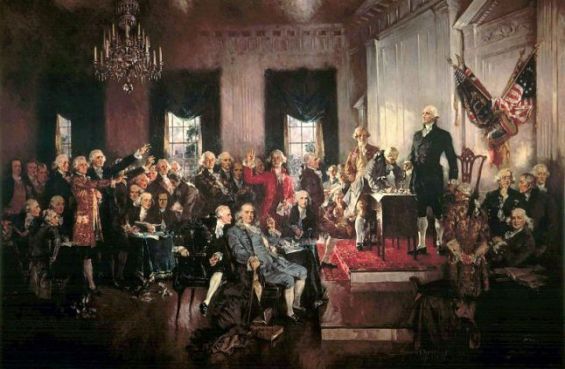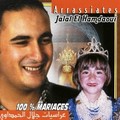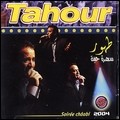In the United States, views about Islam and Muslims changed throughout the years. Contrary to what some people may think, Islam has been part of the history of the United States since the earliest days of the country's founding.
Some historians believe that the earliest mentions of Islam in American history date back to the eighteenth century. This mention was mainly marked by tolerance and acceptance.
Indeed, in November 1796, the United States, ruled at the time by President John Adams, signed a treaty with Tripoli (present-day Libya) acknowledging the importance of respecting «religious opinions», including the ones related to Islam.
America's Founding Fathers and Islam
The document known as the «Treaty of Peace and Friendship between the United States of America and the Bey and Subjects of Tripoli of Barbary» has an article that highlights the position of the United States towards Muslims and Islam.
Unanimously ratified in June 1797 by the US Senate, the treaty which mainly aimed at securing commercial shipping rights and protecting American ships from Barbary pirates, stated in article 11 that the American government «has itself no character of enmity against the laws, religion or tranquility of Musselem».
%2C_by_John_Trumbull.jpg)
Article 11, often cited to address the role of religion in the United States government, stressed that the latter «is not in any sense founded on the Christian Religion».
In the same treaty, which was originally written in Arabic and translated into English by the American general-consul in Algiers, it was stated : «as the said states (the United States and Tripoli of Barbary) never have entered into any war or act of hostility against any Mehomitan nation, it is declared by the parties that no pretext arising from religious opinions shall ever produce an interruption of the harmony existing between the two countries».
The treaty signed by the Bey of Tripoli and President John Adams was, surely, not the only statement that declared no enmity against Muslims. Most of the Founding Fathers of America adopted a similar approach, reports say.
In a 2017 Vox article, James H. Huston, the chief of the Manuscript Division of the US Library of Congress, stressed that the «Founders of this nation (the United States) explicitly included Islam in their vision of the future of the republic». «Freedom of religion, as they conceived it, encompassed it», he added.
The perfect example to this «explicit inclusion» Huston talked about is related to Thomas Jefferson. The third US President and another Founding Father of America owned, as a matter of fact, a translated copy of the Quran. And during a campaign in Virginia, Jefferson demanded «recognition of the religious rights of the ‘Mahamadan’ (Muslims), the Jews and the Pagan», Vox recalled.
The Founding Fathers’ interest in Muslims and Islam continued throughout the years. In 1788, while they were discussing the ratification of the US Constitution, those who opposed the decision argued that Article VI of the Constitution could allow a Muslim to become president of the United States.
«No religious Test shall ever be required as a Qualification to any Office or public Trust under the United States», Vox wrote, quoting Article VI.
America and honoring the fourteenth centennial of Islam
While the Founding Fathers of America tried to explicitly include Islam in their discussions and interests, Americans at the end of the 1970s had a positive opinion about Islam and Muslims.
In fact in 1979, a group of American scholars, businessmen and religious leaders created the National Committee to Honor the Fourteenth Centennial of Islam (ICF) to «counter the negative views of the Islamic world that they felt most Americans held», wrote the Washington Post in 1980.
The group gained much support among Americans, especially intellectuals, politicians and tycoons. In a Washington Times' opinion article, American historian and Middle East expert Daniel Pipes recalled that the Committee was planning to celebrate the turn of the Islamic century on November 21, 1979, organizing a series of cultural events.

Once announced, the Committee’s initiative received «spectacular» support. Big names «agreed to join the ICF board, including presidential relatives, former cabinet secretaries, business tycoons, religious leaders and a glittering array of cultural figures», Pipes said.
«The chairmen of giant companies with heavy Middle Eastern interests, such as Exxon, Mobil, Fluor and Bechtel, sat on the committee and provided much of its funding», he added.
While President Jimmy Carter backed the initiative, Vice President George H.W. Bush «opened the traveling exhibition and President Reagan hoped that «the American people will avail themselves fully of the great experience this exhibition offers».
Although, ICF received federal, state and local funding, its major event was canceled and donors pulled back after the American Embassy was seized in Tehran during the same year.
The relationship between Muslims, Islam and Americans changed later, due to events that were associated to Islam, including terrorist attacks that were supposedly carried in the name of the religion.





 chargement...
chargement...













